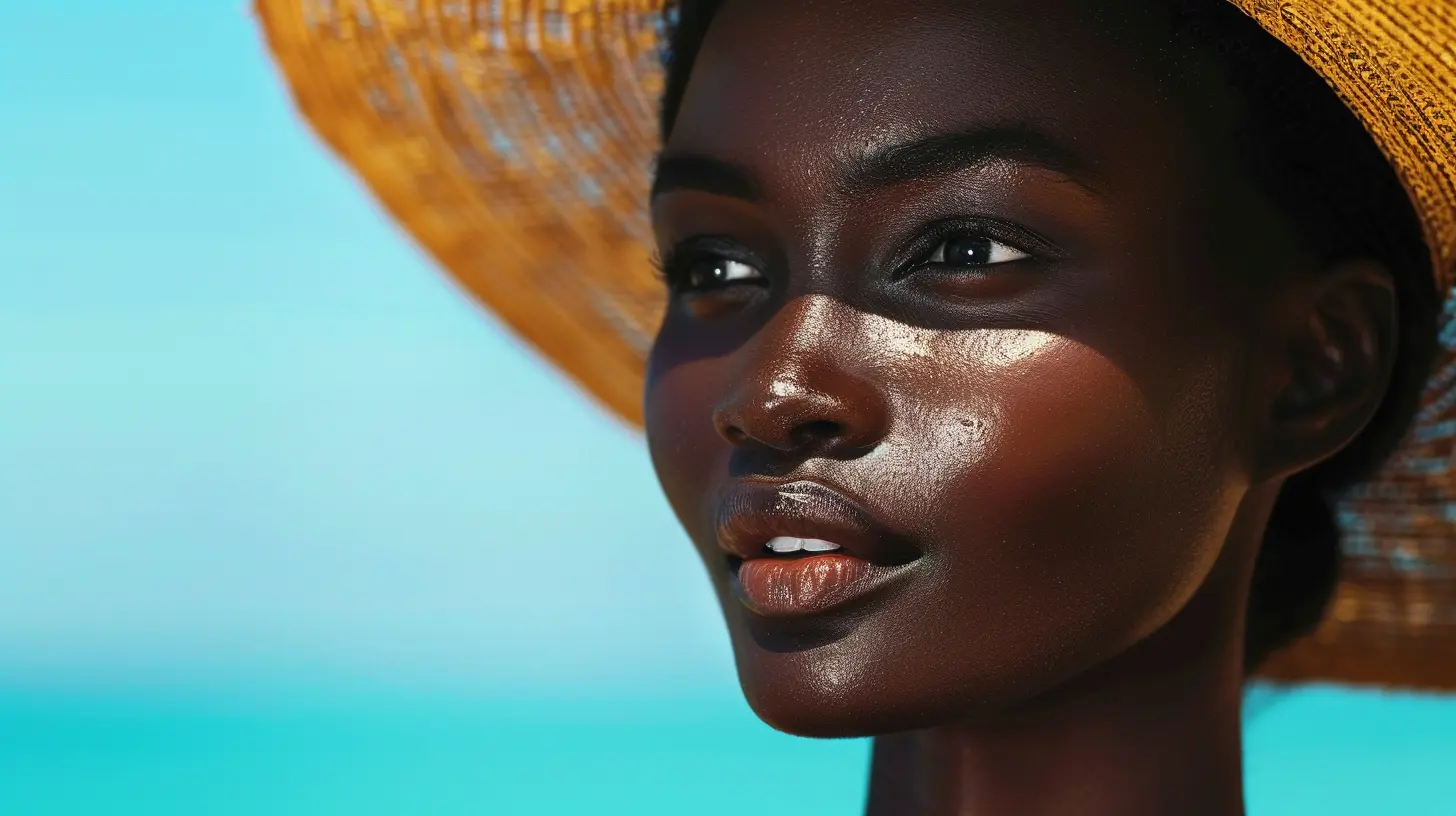Sunscreen for Dark Skin Tones: Common Misconceptions and Best Practices
9 May 2025
When it comes to sunscreen, one of the biggest myths floating around is that people with dark skin don’t need it. If you've ever heard, “Black don’t crack” or “Melanin is natural sun protection,” you're not alone. But here’s the plain truth—no matter your skin color, sunscreen is a must.
In this article, we’ll bust some common myths, dive into the best sunscreen practices for darker skin tones, and show you how to keep your skin glowing and protected.

The Biggest Misconception: Dark Skin Doesn’t Need Sunscreen
Let’s get straight to it—yes, melanin provides some protection from the sun, but it’s not a free pass to skip sunscreen.Why Melanin Isn’t Enough
Melanin does offer some natural SPF (around SPF 13 for darker skin), which is better than fair skin, but it’s nowhere near enough to fully protect from harmful UV rays. UV radiation from the sun can still damage deeply pigmented skin, leading to hyperpigmentation, premature aging, and even skin cancer.Here’s the kicker—skin cancer in people with darker skin is often detected much later because of the misconception that they’re immune. By the time it’s diagnosed, it’s usually at a more dangerous stage. That alone is reason enough to wear sunscreen daily.

Common Misconceptions About Sunscreen for Dark Skin
Now that we’ve cleared the air about the necessity of sunscreen, let’s tackle some other myths that need to go.1. “Sunscreen Leaves a White Cast”
This used to be true—many traditional sunscreens left dark skin looking ashy or chalky. But skincare has come a long way! Nowadays, there are sunscreens specifically formulated for darker skin tones, offering sheer, invisible protection without the annoying white residue.Look for:
- Chemical sunscreens – These absorb UV rays and don’t leave a cast.
- Tinted mineral sunscreens – They blend better with melanin-rich skin.
- Gel-based or transparent sunscreens – These work wonders for deeper skin tones.
2. “SPF 15 is Enough for Dark Skin”
SPF 15 may prevent sunburn for fair skin, but for deeper skin tones, it’s not strong enough to block long-term UV damage. Experts recommend using at least SPF 30, but if you’re spending a lot of time outdoors, SPF 50 is an even better bet.3. “I Don’t Need Sunscreen When It’s Cloudy”
UV rays don’t take a day off. Even on overcast days, up to 80% of the sun’s rays can penetrate the clouds and reach your skin. That means skipping sunscreen just because it's cloudy is a big no-no.4. “Sunscreen Prevents Vitamin D Absorption”
Yes, our bodies need sunlight to produce Vitamin D—but wearing sunscreen doesn’t completely block Vitamin D production. Plus, you can get Vitamin D from foods like salmon, eggs, and fortified milk. Protecting your skin doesn’t mean you have to compromise on essential nutrients.
Best Practices for Sunscreen Use on Dark Skin
Knowing the truth about sunscreen is one thing, but actually making it a part of your daily routine is another. Let’s talk about how to do it the right way.1. Choose the Right Sunscreen
Not all sunscreens are created equal, and with so many options out there, picking the right one for dark skin can feel overwhelming. Here’s what to keep in mind:- Broad-spectrum protection – This means it guards against both UVA and UVB rays.
- SPF 30 or higher – Anything lower, and you’re not getting full protection.
- Lightweight and non-comedogenic – Avoid greasy formulas that clog pores, especially if you have acne-prone skin.
2. Apply It Correctly
Sunscreen only works if you use it the right way. A lot of people either apply too little or forget to reapply, making it less effective.- Use about a nickel-sized amount for your face and a shot-glass amount for your entire body.
- Apply at least 15 minutes before stepping outside.
- Reapply every two hours, especially if you're sweating or swimming.
3. Don’t Forget These Areas
Most people remember to put sunscreen on their face, but what about other vulnerable spots?- Ears – Often overlooked, but just as exposed to the sun.
- Neck and chest – These areas are prone to premature aging.
- Hands – Constant sun exposure can lead to dark spots and wrinkles.
- Lips – Use a lip balm with SPF to prevent dryness and cracking.
4. Make Sunscreen a Daily Habit
Here’s the deal—sunscreen isn’t just for beach days. UV rays are everywhere, whether you're driving, walking your dog, or sitting by a window. Making sunscreen a part of your everyday skincare routine is the best way to protect your skin in the long run.
Best Sunscreens for Dark Skin: Top Picks
Still unsure which sunscreen to grab? Here are a few top-rated options for melanin-rich skin:1. Black Girl Sunscreen SPF 30 – Specifically formulated for melanated skin, no white cast, ultra-moisturizing.
2. EltaMD UV Clear Broad-Spectrum SPF 46 – Great for acne-prone skin, lightweight formula.
3. Supergoop! Unseen Sunscreen SPF 40 – Invisible, weightless, and perfect under makeup.
4. La Roche-Posay Anthelios Melt-in Milk Sunscreen SPF 100 – High SPF, ideal for those spending long hours outdoors.
5. Fenty Skin Hydra Vizor SPF 30 – Rihanna-approved, doubles as a moisturizer, reef-safe.
Final Thoughts
Sunscreen isn’t just for fair skin—it’s for everyone. Dark skin tones may have some built-in protection, but it’s not enough to prevent long-term sun damage. By choosing the right sunscreen and applying it consistently, you’re doing your future self a huge favor.So, the next time someone tells you, “You don’t need sunscreen,” hit them with the facts. Your melanin is beautiful, and it deserves proper care and protection.
all images in this post were generated using AI tools
Category:
Sun ProtectionAuthor:

Angelo McGillivray
Discussion
rate this article
4 comments
Olivia Wheeler
Sunscreen's for everyone—dark skin tones included! SPF: Your skin's best friend, not just a myth!
May 16, 2025 at 2:30 PM

Angelo McGillivray
Absolutely! Sunscreen is essential for all skin tones, including darker skin, to protect against UV damage and maintain healthy skin. Don’t skip it!
Grace McNeal
“Let’s dispel the myths: sunscreen is essential for all skin tones, including dark skin. Protecting your skin is non-negotiable—embrace the best practices and shine confidently!”
May 15, 2025 at 3:31 AM

Angelo McGillivray
Absolutely! Sunscreen is vital for everyone, regardless of skin tone, to prevent damage and maintain skin health. Embrace protection and shine bright!
Raven Bowman
Sunscreen is essential for all skin tones. Don't let misconceptions hold you back; protect your skin wisely every day!
May 13, 2025 at 4:45 AM

Angelo McGillivray
Thank you for highlighting this important point! Sunscreen is indeed crucial for everyone, regardless of skin tone. Let's spread awareness together!
Sophie McQuiston
Think sunscreen is just for fair skin? Think again! Dark skin needs love too—like SPF! Slather it on and glow like the star you are!
May 11, 2025 at 2:28 PM

Angelo McGillivray
Absolutely! Everyone, regardless of skin tone, benefits from sunscreen. Protecting all skin types from UV damage is essential for healthy, glowing skin.



